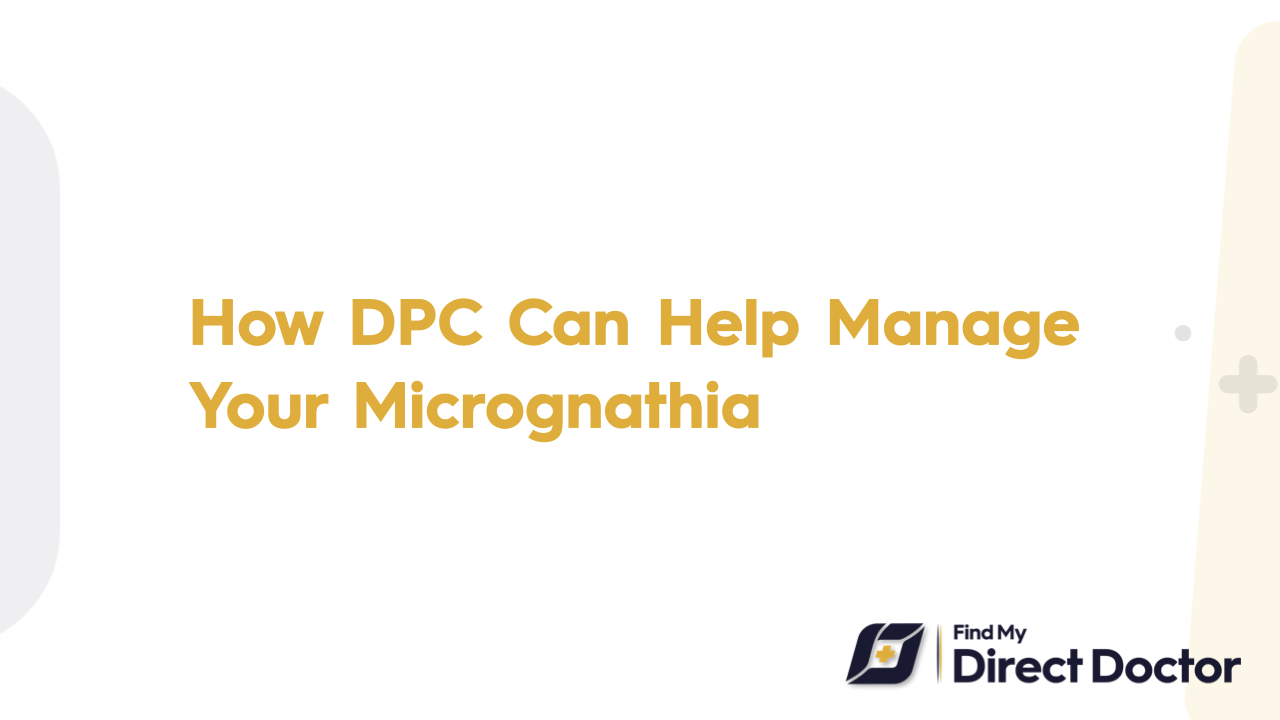



A medical disorder called micrognathia is defined by an abnormally small lower jaw, which can have an impact on the overall shape of the face and the alignment of the teeth. It may emerge later in life or be present from birth (congenital). The disorder may be solitary or linked to other genetic diseases like Treacher Collins syndrome or Pierre Robin sequencing. Micrognathia may be related to craniofacial anomalies in certain situations, or it may be the consequence of developmental problems during pregnancy in others.

The obvious underdevelopment of the lower jaw is the main sign of micrognathia. Speaking, breathing, and eating issues may result from this, particularly in newborns and infants. Dental issues including overbite or misalignment can also affect kids with micrognathia. In more extreme situations, breathing problems may result from micrognathia's impact on the airway. Speech and chewing difficulties can also affect a child's general development and quality of life as they get older.
By giving patients more individualized care, Direct Primary Care (DPC) provides a thorough approach to addressing micrognathia. A DPC approach facilitates improved communication and continuity of care by giving families direct access to their primary care physician. Children with micrognathia require early diagnosis and treatment, and DPC makes sure that their health is regularly monitored. Parents can get timely and continuous advice on how to manage their child's symptoms and deal with any related issues by developing a close relationship with the healthcare professional.
To develop a customized treatment plan for kids with micrognathia, DPC providers might work with specialists including pediatric dentists, speech therapists, or orthodontists. Whether the child requires assistance with feeding, airway issues, or, if required, surgical treatment, this strategy can be tailored to meet their individual needs. More regular follow-ups are also made possible by DPC, which gives the clinician the ability to monitor the child's progress and modify treatment plans as needed.
The more direct and ongoing contact between patients and their healthcare providers is one of the main benefits of DPC for controlling micrognathia. DPC offers the chance for more thorough consultations and prompt follow-ups, in contrast to traditional healthcare models where patients could encounter lengthy wait periods and fragmented care. This is especially helpful for kids with micrognathia since problems such as trouble speaking, eating, or breathing can be avoided with early and continuous therapy.
Because primary care physicians are more likely to coordinate care with specialists in a DPC setting, DPC also guarantees that families receive comprehensive care. Better progress tracking and more individualized guidance are made possible by the healthcare provider's improved accessibility. Additionally, by removing the need for several expert referrals or emergency visits—which might be typical for kids with complicated diseases like micrognathia—DPC can contribute to lower healthcare expenditures. All things considered, DPC gives the child and their family greater control over their healthcare choices while also fostering a supportive environment.
The treatment of micrognathia is very customized in a Direct Primary Care model. In order to customize the care plan for each kid, DPC providers take the time to learn about their particular needs. Whether the child needs speech therapy, corrective surgery, or assistance with eating issues, DPC makes sure that every facet of treatment is tailored to the individual. In a DPC approach, routine checkups provide continuous monitoring, which helps the clinician modify the treatment plan as the kid develops and their condition evolves.
Educating parents on how to manage micrognathia at home is another aspect of DPC's personalized treatment. This could include recommendations for feeding methods, jaw-function exercises, or when to get further aid. Families can get real-time answers to their queries by speaking with their provider immediately, which lowers anxiety and uncertainty. Better long-term outcomes and a higher quality of life are promoted by the flexibility of DPC appointments, which guarantee that care may be swiftly modified to match the child's changing requirements.
Previous Post
Next Post